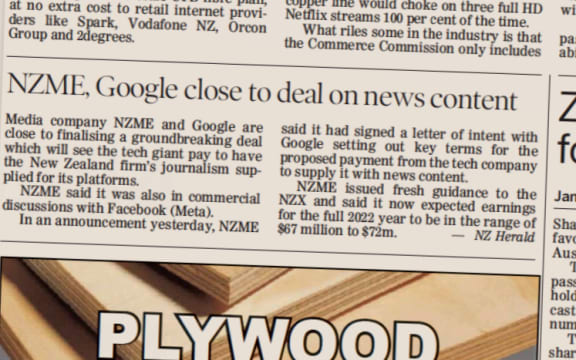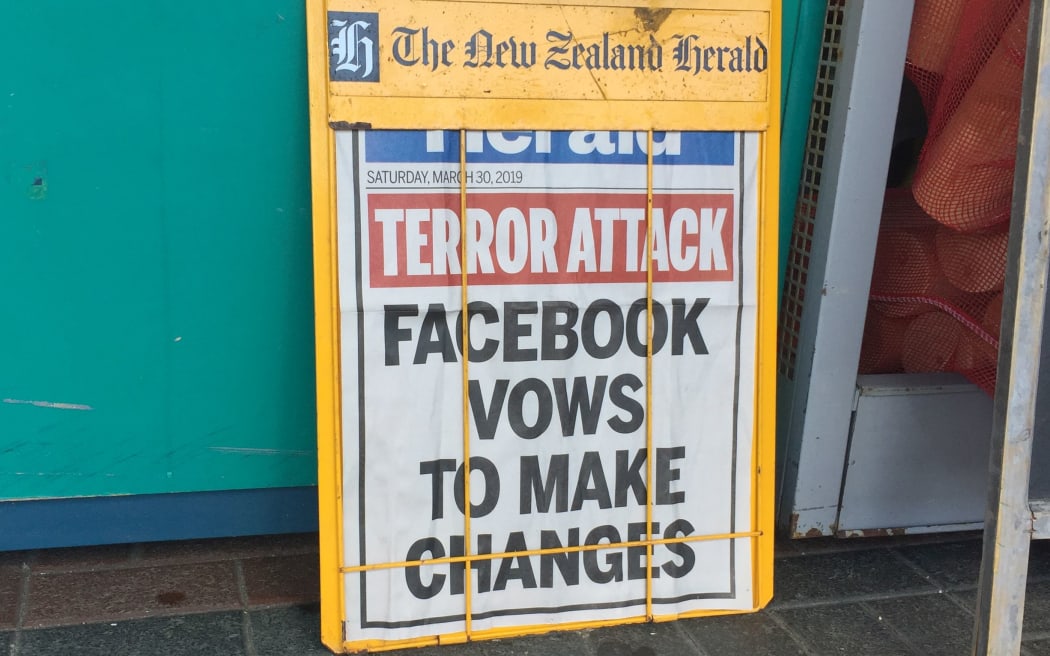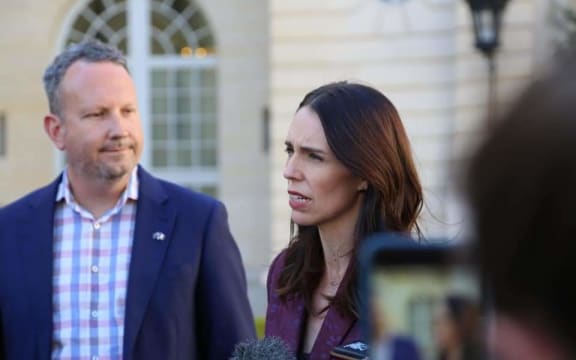Two decades of internet disruption
RNZ
28 May 2022, 11:11 PM
 Jordan Carter, outgoing chief executive of Internet NZ. Photo: supplied / Internet NZ
Jordan Carter, outgoing chief executive of Internet NZ. Photo: supplied / Internet NZThe Internet hasn’t just disrupted the media business in this millennium so far: it’s transformed it - and, in some cases, overwhelmed it. As he steps down after two decades at Internet NZ, Jordan Carter looks back on how the web has become now the main means of reaching people - and the problems that brings with it.
Kiwis could easily use the media without the Internet at all 20 years ago when Jordan Carter first joined Internet NZ, the non-profit group campaigning for safe, secure and effective internet access and services.
Back then, TV and radio was available for free over the air - and you could keep up with daily news by buying the paper, or even subscribing to it.
These days you still can - but if you don't subscribe to an ISP as well, you miss out on instant news and entertainment on-demand. (On the plus-side though, you won't be exposed to the current online extremism
and overreactions).
Jordan Carter has seen the Internet develop from an interesting option for the media industry to become its main source of audiences and innovation.
For some media the Net has been an instrument of doom, making entire sectors redundant and draining its advertising revenue.
Money that used to go into media jobs and news and content here now goes offshore to what were once novel sunrise startups, but are now aggregated together into the richest and fastest-growing companies in
the world.
He was in Paris three years ago with Jacinda Arden to broker the Christchurch Call, which aimed to eliminate online extremism. Three years on, the PM was in the US this week telling Harvard students "the time is
now" to tackle social media algorithms amplifying extremism.
“I certainly didn't understand the way it would play out in terms of the kind of social consequences of it,” Jordan Carter told Mediawatch.

“The big problem for the media sector was that the control of the advertising dollar went away. Classified ads in the newspaper industry vanished pretty quickly. But what people are doing on online platforms has
revealed our preferences. If people don't want to see news content, the providers are always going to shift their algorithms to something else,” he said.
“Fair, balanced journalism is good for democracy. But it turns out that the way our brains are wired, it isn't all that good for keeping people repetitively scrolling on their feeds. The interaction of that with the news
media is just an unfortunate and irrelevant side effect as far as big tech platforms are concerned,” he said.
Digital divide is real
When Jordan Carter became chief executive at Internet NZ, one of the big issues back then w
as connectivity and the broadband rollout.
Concern about the 'digital divide' in the media has receded since then. These days many talk about internet services as if they were ubiquitous or universal - as well as fast.
“A radio doesn't cost you 60 or 80 bucks a month, which a broadband connection can do. The (Covid-19) pandemic was a good case study of the risks around a lack of digital equity,” he said.
“Households were trying to deal with remote working or kids in education and some weren't near a network like fibre or even enough mobile signal. Affordability of it was a real big barrier for some people,” he said.
"There's a massive public interest in making sure that almost everyone can get broadband, but there isn't a discussion that's happening in our society,” he said.
“Fixing things up for the people who don't (have access) is not a giant problem that would take billions of dollars of taxpayers’ money to sort out.
"Successive governments have done a great job on connectivity and getting the networks rolled out. But (they have been) manifestly resistant to this tiny investment that would be needed to sort it out.
"It's just a piece of unfinished business that I'm frustrated to be leaving behind,” he told Mediawatch.

Ten years ago, media companies were under pressure from shareholders and owners to shore up their bottom lines because hoped-for digital revenue wasn't filling the void of advertising lost to the Internet and fast-going online social media.
Sky TV tried to merge with Vodafone in a deal Mediawatch interpreted as a sign that media companies could be swallowed up as mere content divisions of much more profitable telcos.
“I do think you were completely wrong. I'd be super-surprised to see any evolution to bring together big connectivity providers and content providers,” Carter said.
In the end the Commerce Commission knocked back the ‘VodaSky’ bid, but media companies started sharing content on other platforms to boost their reach as websites and social media became their main conduits for sharing news.
Only in recent years have established news media companies - and newer startups - seriously tried to harvest revenue from online subscribers and donors.
Did the media react fast enough to the Internet - and then the power and speed of broadband?
“No - but I don't think any sector has,” Carter told Mediawatch.

“Think about the music industry. That started facing this challenge earlier and for a long time music industry revenues were falling. People were saying that it was the end of the music industry, but you don't hear that kind of stuff anymore because the business models have evolved," he said.
“People still pay to go to live concerts, and so on - and I think you're starting to see in the local media environment some subscriber journalism with systems like Substack and Newsroom for example, that people are prepared to put some money in for content," he said.
“Some of the bigger media firms have started to make more use of the options that tech has made available. And it'll be fascinating to see where the management buyout at Stuff goes over the next few years,” he said.
Another variable in recent years is the so-called ‘culture war’ and political battles over freedom of expression. Will that actually make it harder to make the internet safe as well as profitable?
“That's a part of the mix that makes it a bit harder to tackle some of these issues. We're in a bit of an info-war - and I think that what's happened in Ukraine highlights that,” Carter said.
“The Russian state, for quite a long time, has made use of some of the vulnerabilities of this social media environment to intervene in other countries. They seem to say: ‘Well, we can't ever win a head-on confrontation with the liberal democracies, but we can use these systems they've built to undermine their social and political cohesion.’
"That's a risk people are waking up to,” he said.
“Ever since publishing was invented you've had people publishing bizarre opinions. The problem isn't when some person chooses to express ‘random view X’ they might or might not agree with.
The problem is when their systems amplify it in a way that then creates social divisions that weren't necessarily there.
"Media systems have fastened on to the most controversial and polarizing views, and then just keep stirring them up in a way that draws people apart from each other,” he said.
“In New Zealand, we can look at the reforms that we might be contemplating like the hate speech laws, and say: ‘How do we create systems of law and regulation like we do in every other media
environment that can tackle the systemic propagation of this stuff?' And I think that could take the temperature out of it a bit.
“Maybe I'm too much of an optimist on that. But there is a challenge here for how we deal with these online user-generated content systems that have kind of grown up without the law keeping
up.
“Ten years ago the ethos was really ‘cyber-libertarian’. Stay out of the way, just leave the internet to do its own thing," Carter said.
"What happened in Christchurch was the wake-up call that said we need to actually have effective responses to content which is just beyond the pale. And I'm proud to have been part of the
evolution of that point of view."
Author






